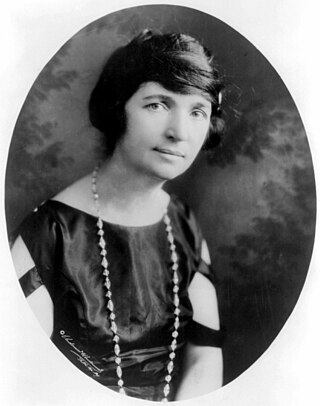
Margaret Higgins Sanger, also known as Margaret Sanger Slee, was an American birth control activist, sex educator, writer, and nurse. Sanger popularized the term "birth control", opened the first birth control clinic in the United States, and established organizations that evolved into the Planned Parenthood Federation of America.

Annie Besant was a British socialist, theosophist, freemason, women's rights and Home Rule activist, educationist and campaigner for Indian nationalism. She was an ardent supporter of both Irish and Indian self-rule. She became the first female president of the Indian National Congress in 1917.
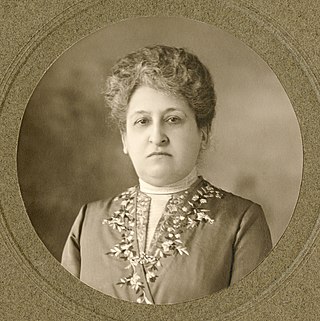
Aletta Henriëtte Jacobs was a Dutch physician and women's suffrage activist. As the first woman officially to attend a Dutch university, she became one of the first female physicians in the Netherlands. In 1882, she founded the world's first birth control clinic and was a leader in both the Dutch and international women's movements. She led campaigns aimed at deregulating prostitution, improving women's working conditions, promoting peace and calling for women's right to vote.
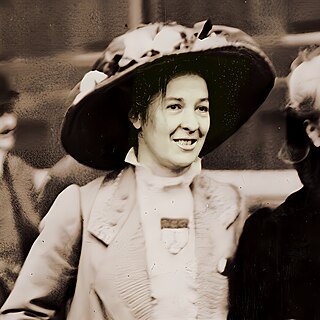
Edith How-Martyn was a British suffragette and a member of the Women's Social and Political Union (WSPU). She was arrested in 1906 for attempting to make a speech in the House of Commons. This was one of the first acts of suffragette militancy. She met Margaret Sanger in 1915 and they created a conference in Geneva. How-Martyn toured India talking about birth control. She had no children and died in Australia.

Charlotte Despard was an Anglo-Irish suffragist, socialist, pacifist, Sinn Féin activist, and novelist. She was a founding member of the Women's Freedom League, the Women's Peace Crusade, and the Irish Women's Franchise League, and an activist in a wide range of political organizations over the course of her life, including among others the Women's Social and Political Union, Humanitarian League, Labour Party, Cumann na mBan, and the Communist Party of Great Britain.
The Malthusian League was a British organisation which advocated the practice of contraception and the education of the public about the importance of family planning. It was established in 1877 and was dissolved in 1927. The organisation was secular, utilitarian, individualistic, and "above all malthusian." The organisation maintained that it was concerned about the poverty of the British working class and held that over-population was the chief cause of poverty.
Stella Browne was a Canadian-born British feminist, socialist, sex radical, and birth control campaigner. She was one of the primary women in the fight for women's right to control and make decisions regarding their sexual choices. Active mainly in Britain, her principal focus was on sexual law reform, including the right for women to both access knowledge on and use birth control, as well as the right to abortion. She was also involved in labour parties, communist parties, as well as a number of women's societies.
Binnie Dunlop was a Scottish medical doctor and advocate of eugenics.

The World League for Sexual Reform was a League for coordinating policy reforms related to greater openness around sex. The initial groundwork for the organisation, including a congress in Berlin which was later counted as the organisation's first, was orchestrated by Magnus Hirschfeld in 1921. It officially came into being at a congress in Copenhagen in 1928.
The history of birth control, also known as contraception and fertility control, refers to the methods or devices that have been historically used to prevent pregnancy. Planning and provision of birth control is called family planning. In some times and cultures, abortion had none of the stigma which it has today, making birth control less important.
Charles Robert Drysdale was an English engineer, physician, public health scientist, and supporter of birth control. He was the first President of the Malthusian League and he published books on a variety of topics including population control, syphilis, the evils of prostitution and the dangers of tobacco smoking.
Halliday Gibson Sutherland (1882–1960) was a Scottish medical doctor, writer, opponent of eugenics and the producer of Britain's first public health education cinema film in 1911.

Edward Truelove was an English radical publisher and freethinker.
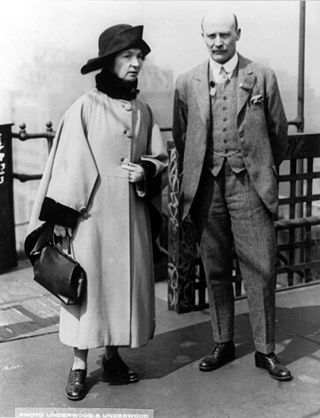
Charles Vickery Drysdale FRSE CB OBE was an English electrical engineer, eugenicist, and social reformer. He is remembered for opening the second birth control clinic in Britain in 1921 and co-founding the Family Planning Association in 1930.

Anna Blount was an American physician from Chicago, and Oak Park. She was awarded Doctor of Medicine June 17, 1897 by Northwestern University. She volunteered her medical services at Hull House, a settlement house in Chicago that was founded in 1889. She encouraged other women to become physicians and was the president of the National Medical Women's Association.

Eugenic feminism was a current of the women's suffrage movement which overlapped with eugenics. Originally coined by the Lebanese-British physician and vocal eugenicist Caleb Saleeby, the term has since been applied to summarize views held by prominent feminists of Great Britain and the United States. Some early suffragettes in Canada, especially a group known as The Famous Five, also pushed for various eugenic policies.

Martina Kramers (1863-1934) was a Dutch suffragist who was a leader in the International Council of Women and the International Woman Suffrage Alliance as well as in the national feminist movement in the Netherlands. In her various roles, Kramers was an active speaker, writer, and conference organizer for the causes she supported.
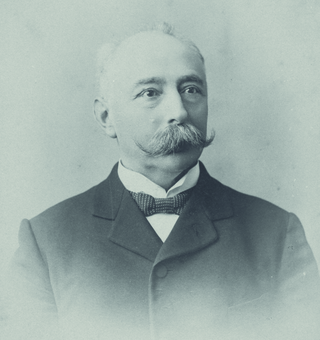
Carel Victor Gerritsen was a Dutch politician known for his radical views. The husband of Aletta Jacobs, he was a proponent of open government, fair wages and birth control. He served as an alderman in Amsterdam and a representative in the States of North Holland. He helped found many radical organisations in the Netherlands including the Neo-Malthusian League, the Radical League and the Free-thinking Democratic League.
Bessie Drysdale was a British teacher, suffragette activist, birth control campaigner, eugenicist and writer. She was a member of the Women’s Social and Political Union’s (WSPU) National Executive Committee and secretary of the Malthusian League.













